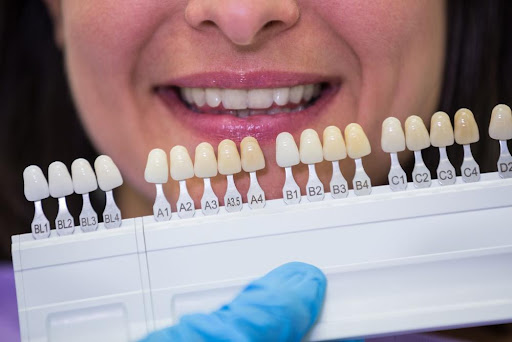Composite bonding, also known as dental bonding or teeth bonding, is a transformative cosmetic procedure that has become increasingly popular in recent years. It involves the application of a tooth-coloured resin to enhance your teeth’s aesthetic appeal.
In the capable hands of dentists and orthodontists, this procedure works wonders, rectifying a range of oral issues, from unsightly teeth cracks and gaps to distasteful discolorations and minor misalignments.
Yet, a pressing question lingers in the minds of those considering this remarkable dental makeover: How long does composite bonding last? Like the artistry behind it, the answer is nuanced and depends on several crucial factors.
In this exploration, we aim to unravel this mystery, shedding light on the lifespan of composite bonding and the elements that wield influence over its longevity. As a plus, we’ll also provide invaluable tips on maintaining the brilliance of your bonded teeth.
Why Opt for Composite Bonding?
Your dentist may advocate for tooth bonding as an economical and swift solution to address certain dental imperfections or to breathe new life into your smile. This transformative process involves applying a composite resin matched to the shade of your natural teeth to conceal flaws with artful precision.
Composite bonding typically graces your smile for a period ranging between 5 to 10 years before necessitating a touch-up or replacement by your dental professional. However, if you should consider a composite bonding procedure to repair your teeth, you should be aware of things that impact the expected lifespan of the resin.
Factors That Shape the Lifespan of Composite Bonding
The longevity of your dental bonding is a delicate interplay of various variables, including:
- The specific type of composite material employed.
- The precise location where the dental bonding is applied.
- The quantity of bonding material used.
- The strength and health of the teeth receiving the bonding treatment.
- Personal habits, such as nail-biting, teeth grinding, or indulging in hard or sugary foods.
It is imperative to acknowledge that while composite bonding offers a swift and elegant solution for addressing dental blemishes and concealing imperfections, it won’t last forever.
When Should You Consider Replacement?
Discerning the need for bonding replacement or repair is an art in itself. The key lies in monitoring any deviations in teeth’ appearance and sensation. Prominent indicators include raised or jagged edges, signalling the need for a prompt dental consultation. Additionally, alterations in your bite’s feel may foreshadow a loose bonding, warranting immediate attention.
Do not underestimate these telltale signs of worn bonding, as loose resin can compromise tooth integrity and render them susceptible to further damage. Naturally, stains affecting the bonding on front teeth, such as the canine and incisors, can undermine your overall aesthetic appeal.
Preserving the Splendour: Prolonging the Lifespan of Composite Bonding
Adherence to uncompromising dental hygiene practices is paramount to maximising the enduring radiance of your bonded teeth. Fortunately, the care of composite bonding closely mirrors that of your natural teeth.
- Brush diligently, at least twice daily, employing a gentle touch. Opt for a soft, high-quality toothbrush and endeavour to replace it every three months.
- Embrace flossing as a lifestyle habit, employing proper techniques.
- Incorporate routine dental check-ups as an integral part of your dental hygiene regimen.
- Approach with caution when engaging in activities that involve chewing hard substances, such as candies, fingernails, or other resilient materials, as the bonded portion of your teeth demands gentle handling.
- In the initial days following your bonding procedure, exercise restraint in consuming items that can stain your teeth, including coffee, tea, and cigarettes.
In Conclusion
Composite bonding is a remarkable avenue for achieving a captivating smile, but its longevity hinges on a medley of factors and conscientious care. By heeding the wisdom of dental professionals and diligently safeguarding your newfound radiance, you can savour the brilliance of your bonded teeth for years to come. Suppose you reside in the UK and require a trusted composite bonding Surrey dentist; the Walton Practice is a stalwart in the dentistry field that offers composite bonding and many more tailored dental treatments.





Be First to Comment